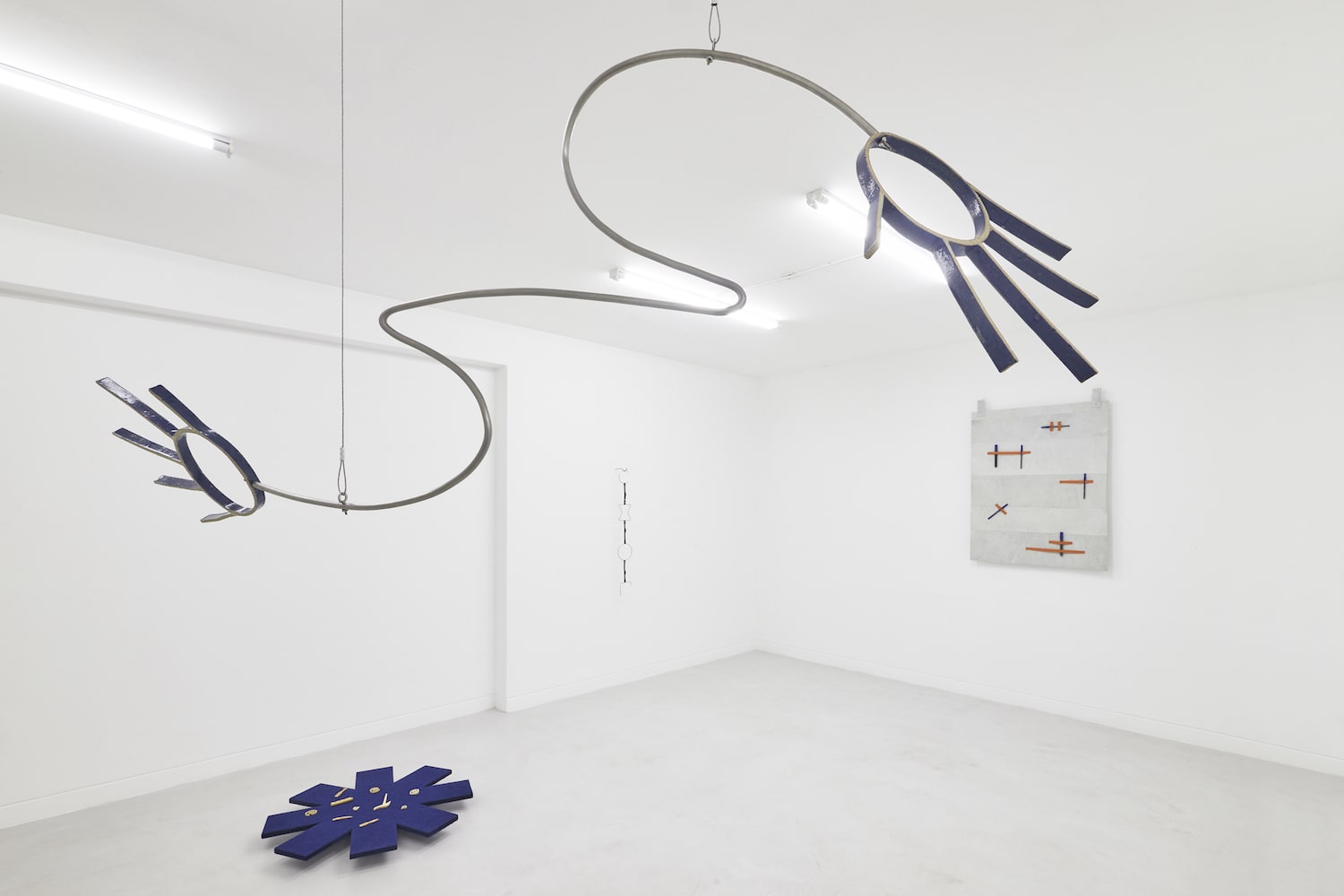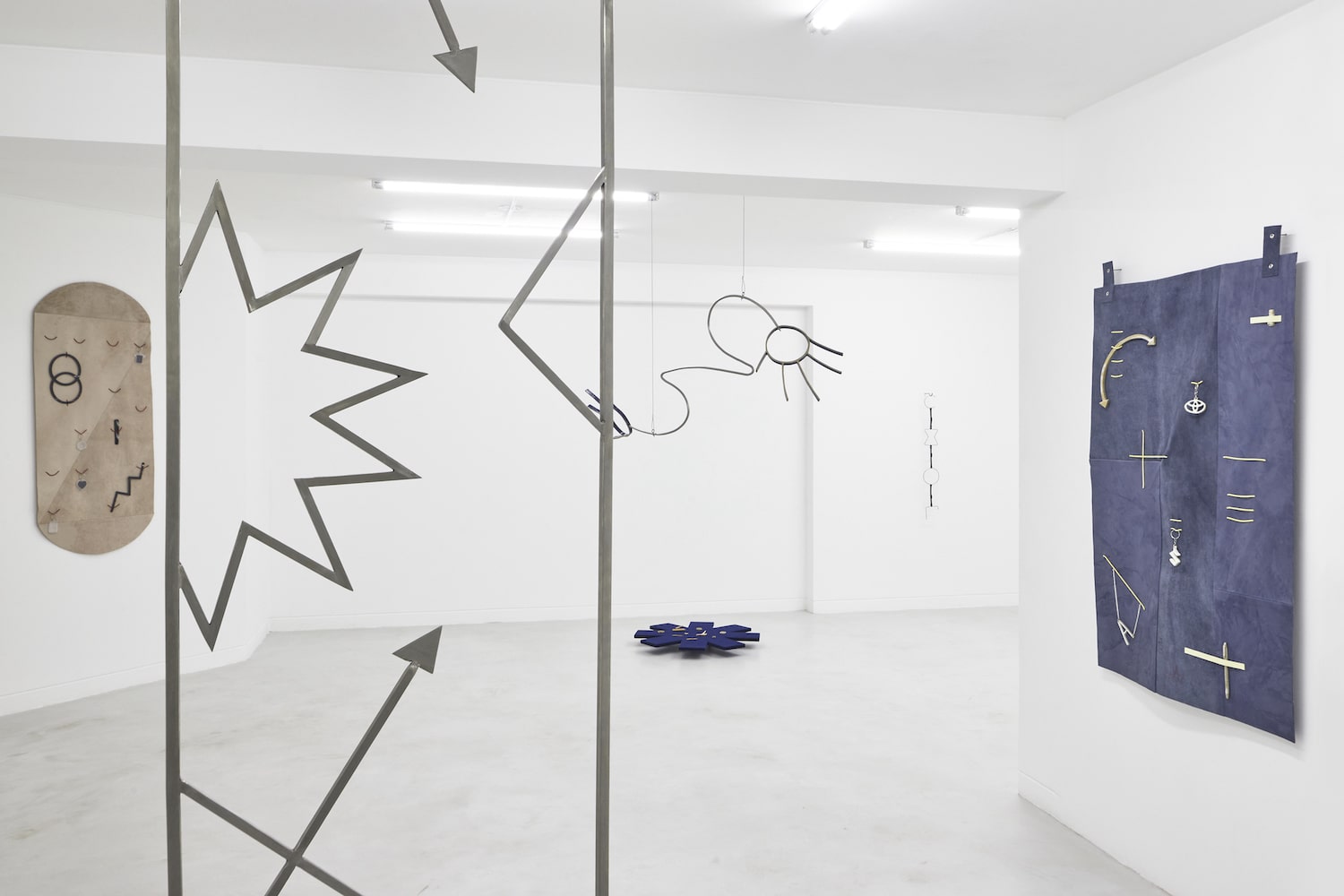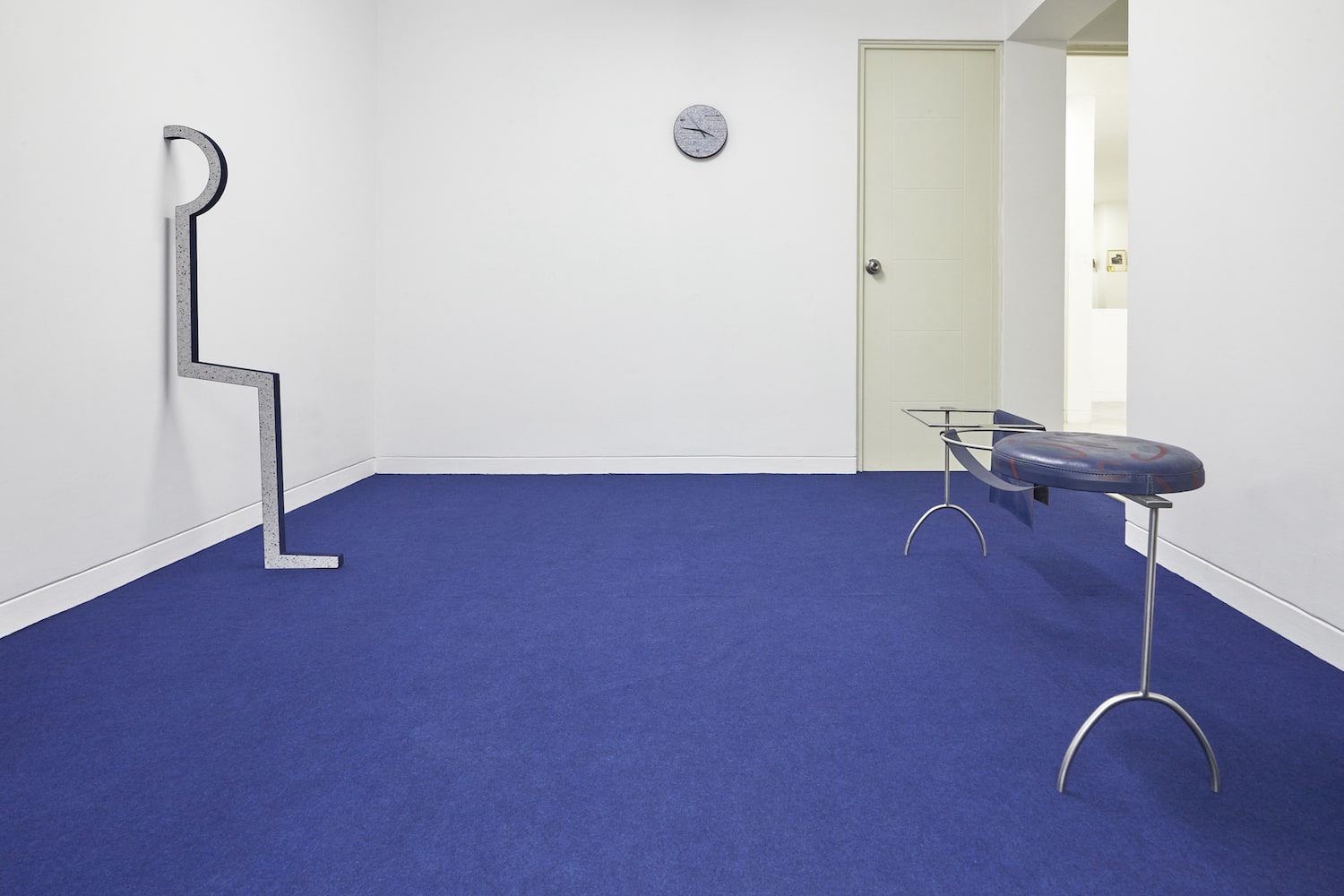01.07.2021
Lima, Peru
May 14, 2021 – July 2, 2021



Other currencies by Jimena Chávez Delion explores, through a sculptural series (in situ and portable), the flows, transactions, debt, corporate environment and the signs present in precise economic exchanges—phenomena that mirror with specific places, contrary experiences and remains of precariousness. Faced with the promise of immediacy, speed, connectivity and instantaneity that the neoliberal regime has imposed, the artist takes note of conditions and spaces that are transversal to said system, existing within contemporary neo-colonial societies.
The exhibition highlights forms of economic exchange present in specific contexts and their symbolic derivations. A first environment shows the forms of commercial and corporate living: a clock with forms for international deposits or remittances, a geometric bench decorated with a representative design of any regional bus and a discreet silhouette that blends a human figure with a symbol of currency exchange. A second moment is dedicated to the exclusive formats of the street trade, the dying call center and other places still resisting, reformulated under new material and symbolic structures.
The financial model determined spatio-temporal conditions supported by immaterial, general and abstract transactions. However, the nature of the economies “from below” of the Americas contrasts (even historically) an alternative condition to assimilate the passage of time, the organization of work and daily transactions—aspects that have been exposed extensively by the Argentine writer Verónica Gago or the border theory author Sayak Valencia. In this exhibition the absurd forms of the service companies and the act of waiting reappear and contradict this promise. They directly affect that regime or world order established by the global economy, with the aim of making visible the microeconomies and a geography redrawn by migration. These works act as a trick against the offer: they make the sign tactile or redirect the signage, strategies that re-program a political- economic approach.
Jimena Chávez Delion returns, based on signatures made evident, redesigned fragments and dispersed materialities—a kind of counter-proposal through an alternative to abstraction. From this approach, she fights the binary that divides the peripheral and the central by playing with a complex heterogeneity that inhabits contemporary “popular” culture and what we could call the “new non-objectualisms” (to renew the coined category by the theorist and critic Juan Acha). This riddle reconsiders the relationship of objects and the possible correlates of their valorization, since they are economies overwhelmed by consumption, entrepreneurship, the recognition of time, territoriality and the use of money.
In our southern cities, MoneyGram, Western Union or Elektra stores coexist with the forms of distribution of informal businesses or with sophisticated display devices for street products. Therefore, the exhibition points to a political subjectivity or a condition of popular subjectivities, those that operate within unstable models of circulation. A key element is playing with materiality, through which Chávez Delion synthesizes and reuses various references. An artisan condition that detonates layers of meaning and the restitution of certain processes, where the use of ceramics, leather and plastic is essential to re-semanticize certain codes facing each other: corporate brands, arrows and diagrams for currencies, or modular doors that face corporeal architectures and other archaic formats. Thus, it generates a kind of strangeness, as well as familiarity, for the bodies that we constantly inhabit and in which we attend to these exchanges.
—Text by Natalia de la Rosa
Comments
There are no coments available.